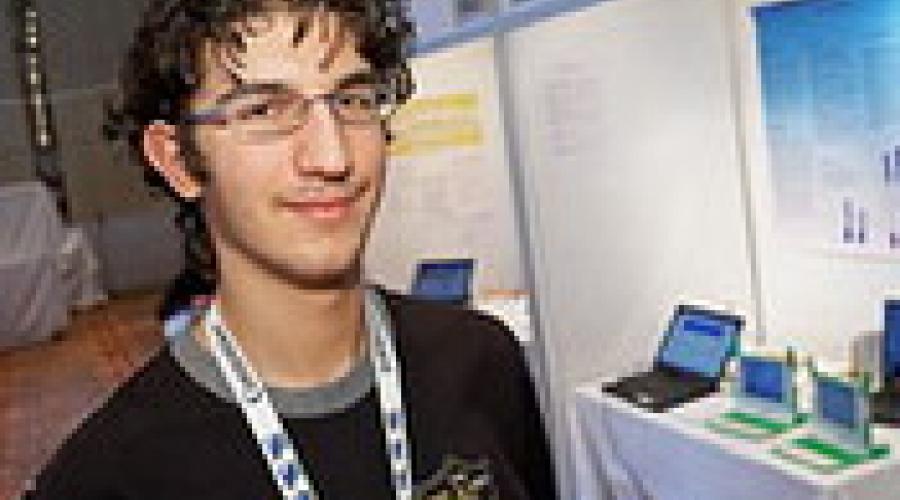
Pioneering research works in all scientific fields carried out by young adults (14 to 21 years of age) were presented with awards in the Competition for New Scientists held in Copenhagen, Denmark. Among the prize winners was a young Greek researcher, 17 year old Nikos Passalis from Thessaloniki who won a special distinction for his work in informatics.
In this year?s European competition for young scientists, entries came from young people in 39 countries from all over Europe as well as from Brazil, Canada, China, Mexico, New Zealand and the USA. The competitors had already been distinguished in their corresponding national competitions. In total, 87 research works were presented which covered a broad spectrum of scientific fields from mathematics and natural sciences to informatics and social sciences. The winners shared the total sum of 46,500 euros while the first three received an award of the value of 7,000 euros each.
The first prizes were won by 17-year-old Magdalena Bojarska of Poland, for her work on the subject of 'Hamiltonian cycles in generalised Halin graphs' (Mathematics), 20 year old Martin Tcak from Slovakia for his work on the subject: ?Decline of the transfer of in-bulk materials based on the principle of gravity on their railway transports (Mechanology) and 18 year old Elisabeth Muller form the UK for her work ?From the microcosmos to the magma oceans - from the perspective of a lunar meteorite? (Earth sciences).
On the occasion of the 20th anniversary of the competition, the European Commission also decided to give a special award of international co-operation for the best work of a team from a non-EU country. The award accompanied by a cash prize of 5,000 euros was won by 16 year old Pipa Grierson for the work ?Combating facial eczema? (bio-sciences).
According to the European Commissioner for Science and Research, Janez Potocnik ?the aim of this competition is to demonstrate and to support the rising stars of research in Europe. This proves the enormous pool of talent which Europe possesses ? a significantly important advantage in an era of universal competition for obtaining knowledge. In addition, it gives young people an opportunity to co-operate beyond national borders, in the spirit of a united European Research Area, which we are attempting to build'.
In the competition, the young Greek researcher Nikos Passalis, who won the Special Award of the EIROforum, was also distinguished for his work on the subject 'Creation of a distributed system using XO computers? (Informatics) The seven largest scientific and research centres of Europe participate in EIRO forum: CERN, EFDA, EMBL, ESA, ESO, ESRF and ILL. Nikos Passalis? award includes a seven day visit and sight-seeing trip to CERN.
The work of Nikos Passalis exploits the cheap pupils? laptops, also known as XO, which were developed within the framework of the programme ?One Laptop Per Child? for Nikolas Negroponte, in order to build a distributed system of computers which will exploit the huge total processing power of these small laptops. According to N. Passalis, with the application of the 'One laptop Per child' initiative across the whole of Europe, the total sum of XO computers could have a much greater total processing power. The program which he created, will be activated when each XO computer closes and is positioned for recharging. Downloading data from the internet, the computer will utilise the ?dead? time, by processing data, on account of universities and research centres.








